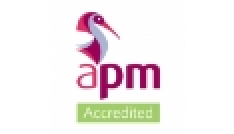APM Project Professional Qualification PPQ Course Outline
Domain 1: Delivering Projects through Effective Leadership and Management
Module 1: Provide Visionary Leadership for a Project
- Evaluate Ethical, Flexible, Inspirational and Collaborative Approaches
- Project’s Strategic Goals
- High-Performance Teams
Module 2: Establish and Develop Teams to Achieve Project Aims and Objectives
- Tools, Techniques and Leadership Behaviors
- How to Respond to Changes in a Project’s Environment?
- Develop And Maintain an Effective Team
- Role of Monitoring and Feedback
- Relationship Between Performance Management, The Team Development Cycle, and Motivation to the Success of a Project
- Evaluate the Usage of Conflict to Improve Individual and Team Performance.
Module 3: Maintain an Engaged and Constructive Team through a Positive Approach to Conflict Management
- Why and How to Act with Objectivity, Impartiality and Honesty
- Analyse Appropriate Actions
- Evaluate Ways to Address Challenges, Issues and Conflict
- Maintain an Awareness of Challenges, Issues, and Conflict
Module 4: Resolve Problems Taking a Logical Approach to the Problem-solving Process
Module 5: Make Decisions which Support the Objectives of a Project
- How to Maintain Decision-Making Hierarchies?
- How Decision-Making Relates to the Organization's Governance Structure?
- Logical and Recognized Approach to Decision Making
Module 6: Communicate Effectively with Stakeholders to Achieve a Project’s Objectives
- Analyse Ways Appropriately Communicate with Stakeholders
- Evaluate Ways in Which to Communicate Throughout a Project
- Effective Verbal Communication
Module 7: Negotiate Effectively with Stakeholders to Achieve a Project’s Objectives
- How to Effectively Negotiate with Internal Stakeholders?
- How to Effectively Negotiate with External Stakeholders?
Domain 2: Delivering Projects through Effective Governance and Oversight
Module 1: Establish and Maintain the Governance Structure of a Project to Ensure Alignment to Organizational Practice
- Evaluate Appropriate Structures and Hierarchies for a Project
- Why and How to Establish Roles, Responsibilities and Relationships within a Project
- Establish and Maintain the Reporting Hierarchies and Structure During the Life of a Project
Module 2: Use Information to Inform Reviews and Help Manage Deviations from a Project Plan
- Key Stages in a Project-Based Life Cycle
- Importance of Aligning Reviews with Organizational, Legal and Regulatory Requirements
- Analyse Situations and How to Resolve Them
- Reasons for Accurately Documenting Deviations from a Project Plan
Module 3: Manage Change Control Processes and Protocols
- Implementation And Maintenance of Change Control Process
- Determine The Impact on a Project’s Scope and Objectives
- Implement And Manage Approved Changes to a Project
- Why and How Trends Analysis is used to Add Value?
Module 4: Manage Stakeholder Influence, Interest and Engagement for the Benefit of a Project
- Techniques to Determine Stakeholder Power, Influence, and Interest
- Develop and Implement a Stakeholder Engagement and Communication Plan
- Monitor and Amend a Stakeholder Engagement and Communication Plan
- Evaluate Relevant Feedback from Stakeholders
- Why and How to Provide Relevant Stakeholders with Financial Reports
Module 5: Deliver the Intended Benefits of a Project
- Importance of Confirming the Intended Benefits
- Develop a Benefits Management Strategy
- Importance of Prioritizing the Achievement of Benefits
- Create a Benefits Realization Plan
- Evaluate Ways to Maximize Achievement of the Planned Benefits
Domain 3: Delivering Projects through Effective Planning and Control
Module 1: Manage Project Costs within Agreed Budgets Which Supports Management of a Project
- Cost Tracking Tools and Techniques
- Importance of Cashflow and Cashflow Forecasting
- Establish Cost Trends and Monitor the Financial Performance
- Importance of Cost Analysis and its Role
- Importance of Completing all Financial Transactions
Module 2: Respond to Risks to Minimize Threats and Increase Opportunities
- Qualitative and Quantitative Approaches to Risk Identification and Analysis
- How to Record and Plan Responses to Risks
- Why and How to Implement Appropriate Responses to Risks
- Importance of Reviewing How Risks Were Managed
Module 3: Respond to Issues in a Way that Supports the Management of a Project
- Why And How to Record and Plan Responses to Resolve Issues
- How to Implement Appropriate Responses to Issues?
- Importance of Reviewing How Issues were Resolved During a Project
Module 4: Develop and Implement an Integrated Plan to Support the Management of a Project
- Document the Outcomes of a Project’s Planning Process
- Fundamental Components of Scope, Schedule, Resource, Budgets, Risks and Quality
- Purpose of an Integrated Plan
- Why And How to Monitor the Progress of a Project?
- Why and How to Adjust an Integrated Plan?
 To help and support our clients we are providing a limited number of 250 daily discount codes. Hurry, first come, first served!
To help and support our clients we are providing a limited number of 250 daily discount codes. Hurry, first come, first served!












 History of APM
History of APM What if I fail my PMQ course?
What if I fail my PMQ course? APM Exams
APM Exams When will I receive my APM exam results?
When will I receive my APM exam results? APM Methodology
APM Methodology How to pass your APM courses
How to pass your APM courses APM Careers
APM Careers How to book an APM course – A step by step guide
How to book an APM course – A step by step guide What to do after APMP
What to do after APMP APM PMQ Case Studies
APM PMQ Case Studies APM Books
APM Books Who is PMQ for?
Who is PMQ for? Benefits of PMQ
Benefits of PMQ How to add APM qualifications onto your CV - A step by step guide
How to add APM qualifications onto your CV - A step by step guide














 If you wish to make any changes to your course, please
If you wish to make any changes to your course, please


